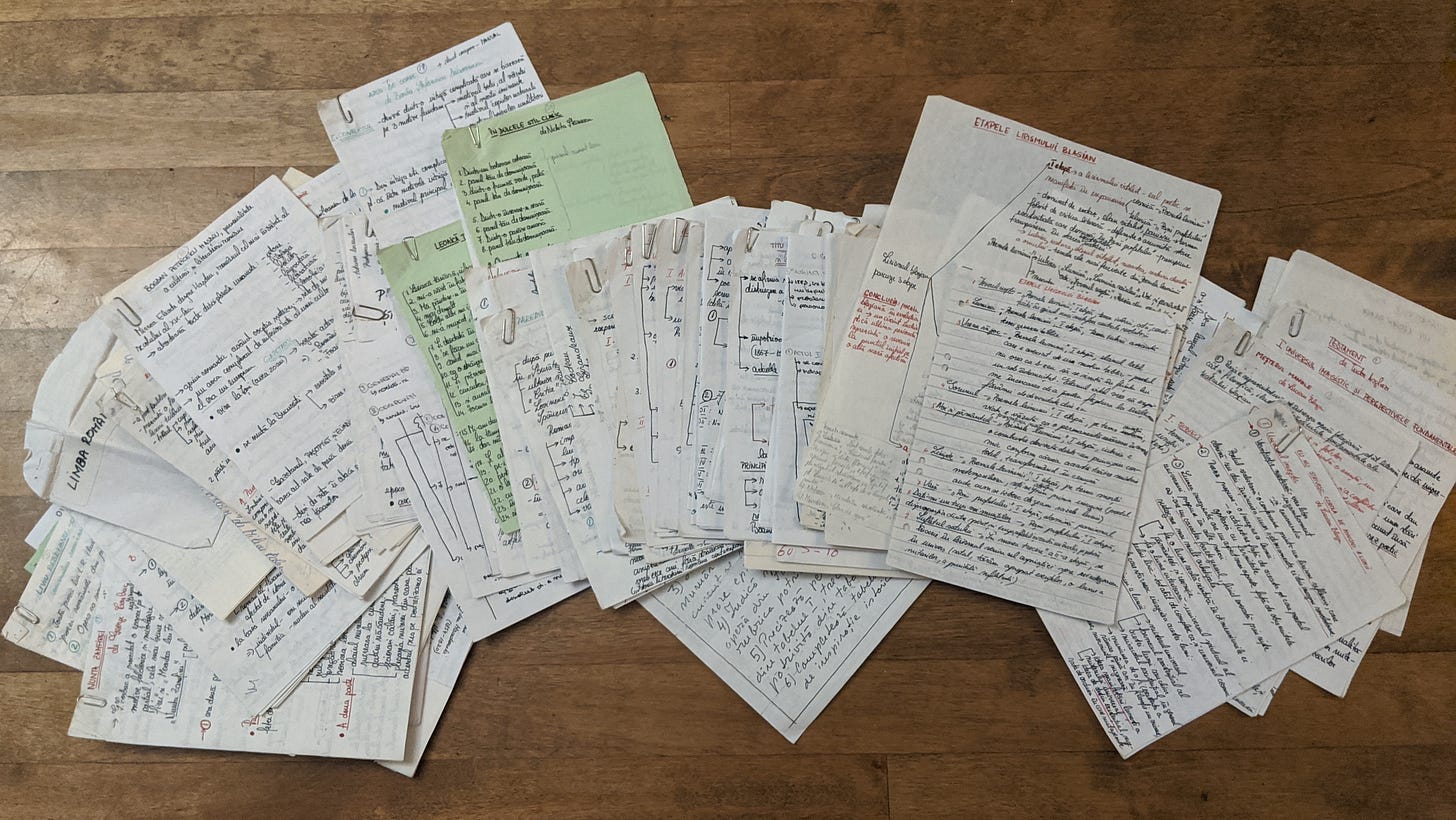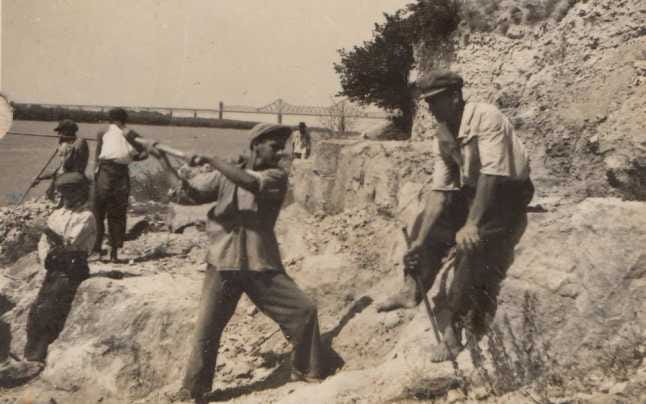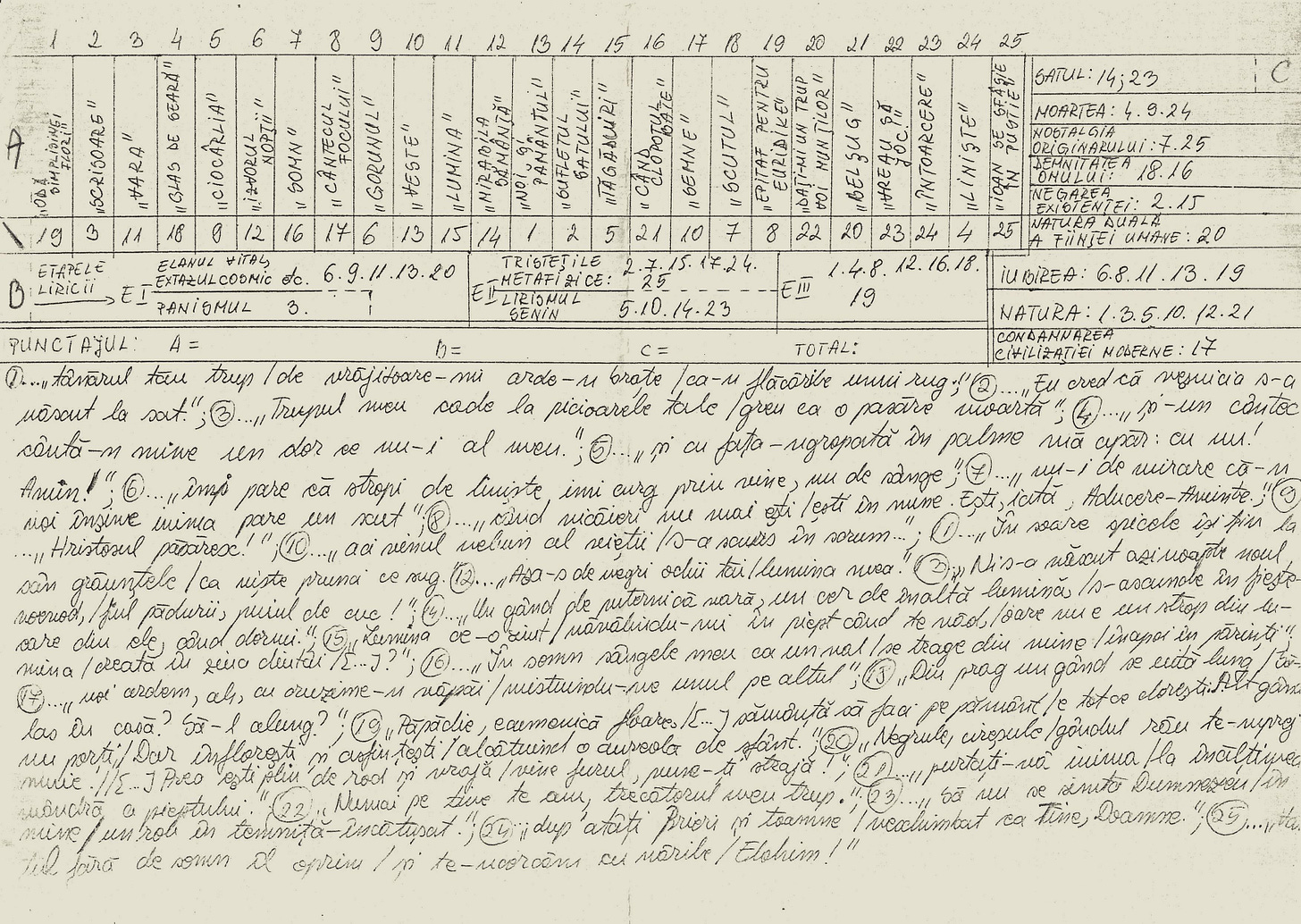In my high-school literature class (not English), I never had to write an essay. No composition exercises, novel summarizing, or character descriptions. In fact, we never had to produce any - even semi-original - writing. Instead, for the entire duration of the class, the teacher dictated his notes for every piece of literature, in bullet or numbered form. He dictated from memory, reading only the quotes, and their precise reference, from little index cards he carried in his pocket. He seemed to calibrate the speed so as to prevent us from even adjusting our seat, or we'd miss out a whole paragraph. Even then, we had to compare notes to fill in gaps, because we had to be so fast, our writing was often illegible. We never had time to think or reflect in class.
And yet, this frail old man was the favorite teacher of a class of math gifted kids. And in a big kind of way, as in:
He was the only teacher we'd never either aggressively or subversively defy.
We skipped other classes to sit in dark bars, smoke, and collaboratively rewrite our class notes.
I wrote my valedictorian speech with him in mind and looked at him while reading it, because his reaction was the one that mattered.
Quite a few of his students turned to humanities, even if we were being groomed to become STEM stars.
Two decades after finishing high-school, we chat about him and drop obscure Romanian literature quotes only we know, like cult members.
Before even having kids, I vowed to teach them Romanian, so that they could read his favorite poet (who became mine, too).
That's how damn good his notes were.

For every piece we studied (novel, short story, poem…) he produced a lit review by many critics, in bullet points, usually accompanied by supporting quotes from the piece and/or from critics. The textbook's point of view was but one of the bullets, often accompanied immediately by a counterpoint. And God, they were good, and made sense in a beautiful Hegelian kind of way that just mapped perfectly onto our reason thirsty, yet opposition disposed young minds! It even worked for poetry and fantastic short stories, because you could feel they were his favorite, and his notes on them were even lusher. He never read the poetry quotes from index cards: if you were fast enough, you could catch him saying them with his eyes closed and a child-like wonder in his voice.
He was otherwise sarcastic and brash, but only towards himself and the administrators who were trying to make him follow the curriculum or bow to a mom's request to pass her kid, or else. He'd straight up turn his back to them or leave meetings laughing at their requests. He never tried to look cool (yes, kids have a sixth sense for this vibe), on the contrary, he laughed at himself, once telling us how he stared proudly in the mirror for a while at his young self, after his university professor told him he had great potential to become a successful young researcher; it took only a couple of months before the professor didn't want to have anything to do with him anymore. We knew he'd failed his academic career because he didn't bow to the party line under the Communist regime, and did time in a work camp building the Danube-Black Sea Canal. He never told us about it, and although he was a disagreeable hip-shooter, he also laughed a lot and never ever acted resentfully. You could never guess the suffering he’d been through from the dreamy quality of his voice when he read poetry.

His elaborate note-structures were only matched by his test designs.
(One underrated motivation leverage point for kids is perceived fairness. Kids don't trust, nor like, a teacher, or generally an adult, who teaches or preaches well, but is then absolutely careless in following through with fair grading).
He did walk the talk: had almost draconian anti cheating measures but also a grading scheme where each bullet, point, or phrase were assigned points with mathematical precision. It was so difficult, as to be close to impossible to get a 10 (100%). You'd only ever get a 10 if he heard you, even on the hallways, talking about unassigned readings.
In another type of summative assessment once or twice a trimester, he tested us on reading huge amounts of original pieces. This is a one page table he designed where we had to match poetry snippets to their titles, lyrical periods, and themes:

This boxing-in of what may seem as uncontainable poēsis was not a turnoff, nor did it ever feel like constraining our creativity. We’d never felt like his note structuring obsession and test design precision tarnished in any way the magic and mystery of literature. On the contrary, it felt like being walked through all the nooks and crannies of a beautiful house, and exploring it in so much detail that you'd end up feeling its beauty with your fingertips and forever longing to create or at least touch other houses once you got out, which you were encouraged and free to do anytime.

And that's how beautiful notes feel to me.




Thanks for sharing your memories of what sounds like a great teacher. Hope to read more of this sort of thing in the future :)